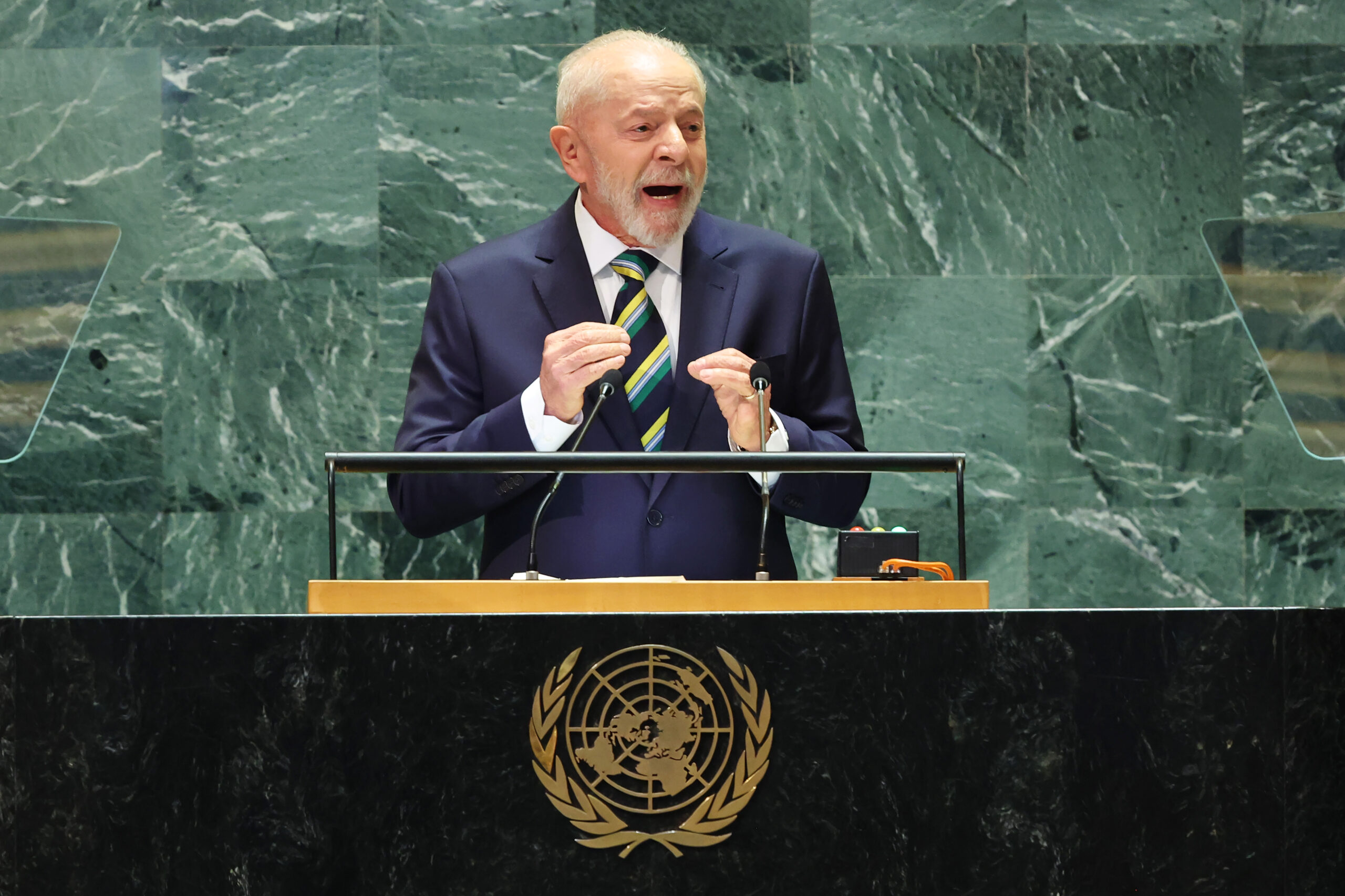- September 30, 2024
Ludicrous U.N. speeches: Brazil, Colombia focus on Israel, ignore Venezuela crisis

Andres Oppenheimer
The speeches by the leaders of Brazil and Colombia on the opening day of the United Nations General Assembly in New York on Tuesday were pathetic.
They condemned Israel for the wars in Gaza and Lebanon and lamented the political crisis in Sudan. However, they totally ignored one of the world’s biggest refugee crises unfolding in their own backyard: Venezuela.
Neither Brazil’s President Luiz Inacio “Lula” da Silva nor his Colombian counterpart Gustavo Petro denounced Venezuela’s dictator Nicolás Maduro for having recently stolen his country’s elections, or for the fact that his death squads have killed thousands of peaceful protesters in recent years; or that about 8 million Venezuelans — more than 20% of the country’s population — have fled their homeland since he took power in 2013.
Lula and Petro’s omission of Venezuela in their U.N. speeches was even more preposterous if you consider that they proposed grandiose plans to solve the war in Ukraine and in the Middle East, as if they were major players or had some influence in those parts of the world.
Lula touted a joint Brazilian plan with China to end the war between Russia and Ukraine, which critics say would pretty much allow Russia to keep part of the Ukrainian territory it invaded. Ukrainian president Volodymyr Zelensky has called the plan “destructive.”
Lula started his speech saluting the Palestinian delegation at the assembly, and blamed mostly Israel for the war against Palestinian terrorist groups that have been calling for Israel’s annihilation and attacking it for many years. The Brazilian leader also lamented the suffering of the people of Ukraine, Sudan and Yemen, and denounced the United States for keeping Cuba on its list of states that promote terrorism.
Petro, who addressed the U.N. assembly shortly thereafter, made an even more ridiculous speech. The Colombian president, who has been accused by Israeli officials of not only being anti-Israel but antisemitic, spent more time talking about the Israel-Hamas war than about any other conflict.
Petro accused Israel of carrying out an alleged “genocide” in Gaza, failing to say that the Hamas terrorist group started the war by invading Israel almost a year ago and murdering about 1,200 innocent civilians, including women, babies, and 250 youths who were attending a music concert. Neither did Petro mention that Hamas has been attacking Israel, and calling for Israel’s destruction, for many years.
To his credit, President Biden mentioned Venezuela in his address to the General Assembly, as he was talking about the need to defend freedom and justice around the world.
“We saw it — that universal yearning for rights and freedom — in Venezuela, where millions cast their vote for change. It hasn’t been recognized, but it can’t be denied. The world knows the truth,” Biden said, referring to Maduro’s July 28 electoral fraud.
Argentina’s President Javier Milei also mentioned Venezuela in his address to the General Assembly, rightfully lashing out at the United Nations for allowing “the dictatorships of Cuba and Venezuela” to hold seats at the U.N. Human Rights Council “without the slightest qualm.”
Likewise, Guatemala’s center-left President Bernardo Arévalo said in his speech that his country rejects any repression of freedom and justice “as is happening right now in Venezuela and Nicaragua.”
Ironically, no other countries in the world have been more affected by the stampede of Venezuelan migrants than Colombia and Brazil. More than 2.4 million Venezuelans have fled to Colombia and over 500,000 to Brazil in recent years, according to U.N. figures.
Venezuela’s opposition leader Maria Corina Machado told me in a recent interview that “three, four, five million Venezuelans may flee” to neighboring countries if there is no hope for a restoration of democracy in Venezuela. Asylum requests by Venezuelans in Brazil have increased by 25% since Maduro’s recent electoral fraud, according to press reports quoting U.N. officials.
Instead of trying to solve far-away conflicts in countries they barely know, Lula and Petro should have called for renewed efforts to restore democracy in neighboring Venezuela, which is Latin America’s biggest humanitarian catastrophe in recent history and is impacting their own countries more than any other global conflict.

